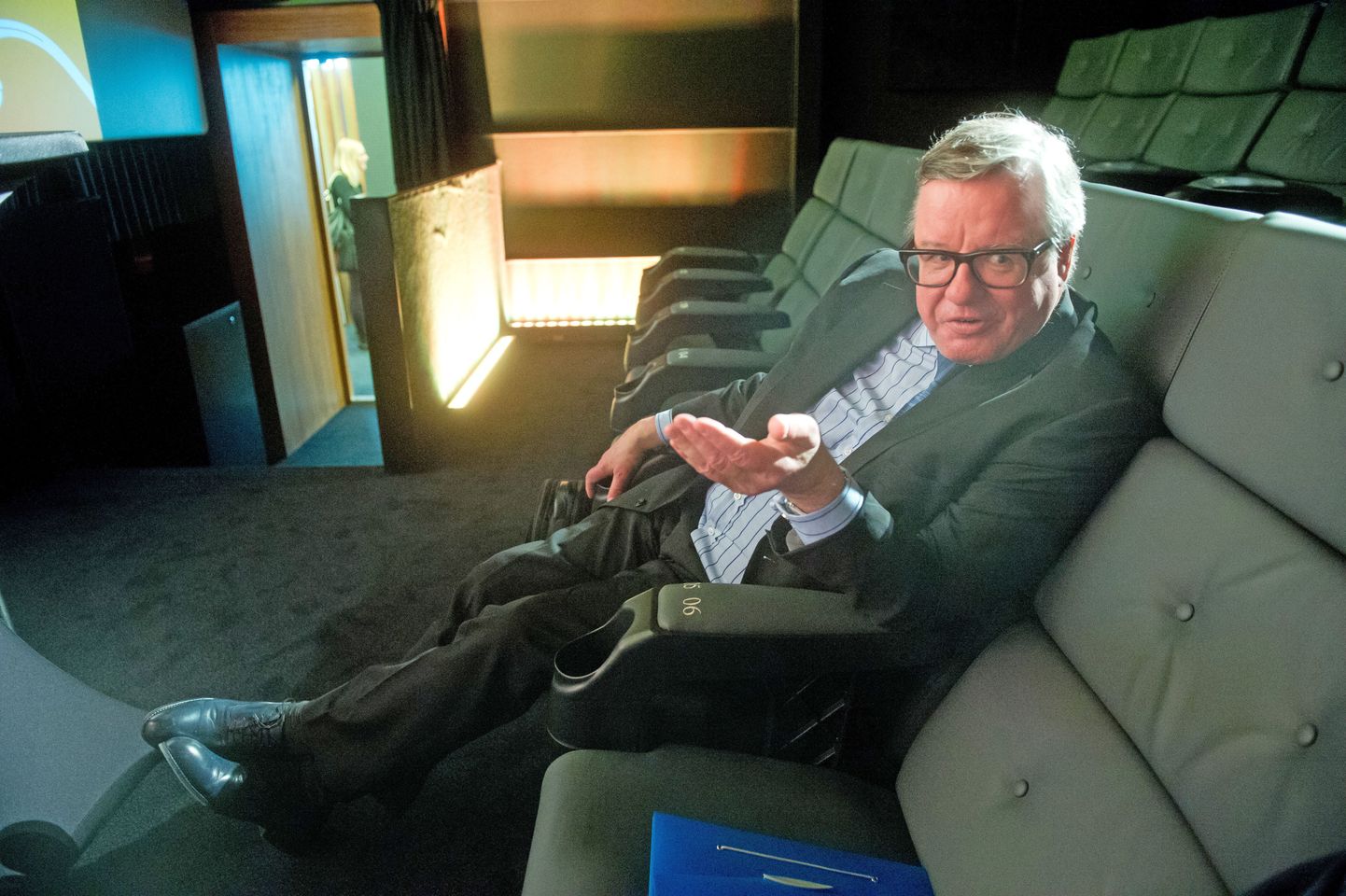
Pekka Sutela – an esteemed Finnish economist, expert of Soviet economy and long-term employee in Bank of Finland – breaks myths regarding Russia as an allegedly strong state upheld by vast mineral resources.

Pekka Sutela – an esteemed Finnish economist, expert of Soviet economy and long-term employee in Bank of Finland – breaks myths regarding Russia as an allegedly strong state upheld by vast mineral resources.
«Without its oil and gas, Russia would be a place rather miserable,» Mr Sutela told Postimees. «When talking about size and strength of nations, we go by certain criteria,» explained Mr Sutela, adding that an important criterion is a nation’s ability to achieve its stated aims.
«A nation needs to have aims and its strength is in how it achieves these.» Russia lacks clear aims. As opposed to our traditional view, Mr Sutela does not think Russia is a dictatorship.
«Russian president Vladimir Putin is not a dictator,» explained Mr Sutela. «Rather, he is the chairman of a corporation where rights and obligations are very badly distributed. He needs to stand as arbitrator between various interest groups and various aims,» he said.
True, in this corporation Mr Putin’s friends and comrades are important decision-makers. But they do not agree about everything. They have conflicts between them, and Mr Putin needs to act as arbiter between them.
In Russia, taking decisions takes a very long time and it is not too clear what these actually mean. «These are caused by various compromises which need to be made among a political elite very small in number,» explained Mr Sutela, citing the examples of the two energy giants Gazprom and Rosneft which are both state-owned. Both are led by good friends of Mr Putin’s, but have an obvious conflict of interests between them.
As for who leads Russia, Mr Sutela does not think there is an explicit answer. «Russia would be a much better place if somebody were leading it, best if that would be happening through democratic processes,» thinks the expert, adding that the advantage of China before Russia was that China is a dictatorship and we have no idea about the inner conflicts within their politburo. «China is being led, but I am not totally sure if Russia is being led,» insisted Mr Sutela.
Russia’s riches lie in natural resources – firstly gas and oil. According to Mr Sutela, the best example of how to use one’s resources are the Nordics whose riches are fish, forest and oil. In his opinion, the main reason they have turned into wealthy states was the privatisation of forest.
«On these areas where we currently have Sweden and Finland, it took two hundred years for forests to be privatised,» explained the economist. «Thanks to the exports of privatised forests, many ordinary people got rich,» he added, citing Finland where about 10 percent of households own forest.
In Russia, nothing of the kind has happened. It is difficult to say who actually are owners of Russia’s forests. «Pursuant to law, they explicitly belong to the state and the regions, but no-one understands what that means in practice,» said Mr Sutela.
What is peculiar with oil and gas is that it is very easy to monopolise their use. «Figuratively speaking, all it takes is one soldier with Kalashnikov at one end of the pipe and another at the other end, and this is enough to have a monopoly,» explained the expert.
From the Nordic point of view, rights to resources have never been prudently distributed in Russia.
«Take Norway, where there is lots of fish in the fjords. There was not a chance for the Viking kings to have monopolised fishing. Everybody had the opportunity to fish. The Danes had free access to Norwegian fish,» said Mr Sutela. «When resources are monopolised, it is easy also to monopolise the political system. And this is what we keep seeing in Russia the whole time,» he added.
Though regarding export revenue Russia’s economy stands on one leg – mainly, the income comes from selling oil and gas – Russia’s internal market is much better developed than in the 1990ies.
«Russia has two economies – the international part totally differs from the domestic one,» explained Mr Sutela, discarding another myth that the main engine for the rapid economic growth of the first decade of this century was the fast oil price rise during that time.
Unlike the 1990ies when Russia had a dollar economy, they now have a rouble based economy. This also is a reason why, in the first decade of the century, Russian economy grew so fast.
«Reckoned in dollars, Russian economy grew twice as fast as that of China,» Mr Sutela said in his presentation at Swedbank’s spring conference. «The economy grew thanks to systemic rearrangements,» said Mr Sutela. «And of course also thanks to the continuous rise of oil prices,» he added.
In Russia, stabilising the economy was rather simple; but going on from there, several things become much more complicated such as creating a well-functioning banking system. If this is not accomplished, Russia is faced with various difficulties. «If not in this year, then in the next – latest,» warned the expert.
In his presentation, Mr Sutela underlined that the rapid growth of the first half of 2000ies was unique and would not be repeated. Analysts are unanimous that till 2030 the growth potential of Russian economy will rise by an average of two percent a year, which for Russia is obviously too slow.
All this the Russian leadership knew in the middle of last decade, but were unable and unwilling to create the conditions for a new growth engine.
Pekka Sutela
Professor at Lappeenranta University of Technology, associate professor at Aalto University School of Business.
Visiting professor at Paris School of International Affairs (Sciences, Po).
In 1973–1990 and 1995-1997, professor at University of Helsinki.
Since 1990, at various posts in Bank of Finland.